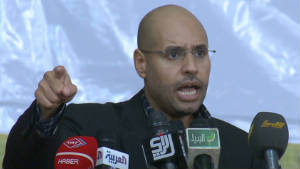By Zach Waksman
Impunity Watch Reporter, Africa
JUBA, South Sudan – Explosions rocked the border between Sudan and South Sudan after the bombing of a civilian refugee encampment in Yida. The South Sudanese army estimates that five people were killed and 26 were wounded as a result. Following the attack, Oxfam, a British humanitarian organization, removed its staff from the area.

“New bombing raids and a buildup of troops along the border of Sudan and South Sudan over the past few days threaten to escalate what is already a significant humanitarian crisis in the newest country in the world,” a statement said.
Oxfam, which had been providing clean water to the area, was concerned by the attack, calling for a ceasefire so that humanitarian organizations such as it can return to the area, from which over 50,000 people have fled since hostilities began.
“Thousands of refugees are still coming across the border from Blue Nile. They have fled attacks and walked for days to reach a place they thought would be safe – but instead they are now facing more violence. In desperate need of food, water and shelter, the refugees now receive virtually nothing when they arrive,” said Sanjay Awasthi, head of the organization’s mission there.
South Sudan has been in existence for about six months, pursuant to a peace treaty that ended a long-running civil war. But since then, new violence has taken its place, creating fear that its northern neighbor might attempt to take back its lost territory. The United Nations was quick to accuse Sudan of conducting the bombing. The country has denied the attack’s taking place.
“This information is completely false. We didn’t bomb any camps or any areas inside the borders of South Sudan,” said Sudan Armed Forces spokesman Sawarmi Khaled Saad.
Despite the claim, the U.N. mission in South Sudan (UNMISS) reported that two bombs fell inside the camp. Three more fell outside the camp. Oxfam said that workers saw planes flying overhead. Camp residents told the media that they identified the planes as a kind that the Sudanese forces used as a bomber. The U.N. agreed, and had been seeking to relocate the refugees away from the border. But according to Adrian Edwards, spokesman for the U.N. High Commissioner for Refugees, heavy rains had made the trip impossible.
In the meantime, the Human Rights Council seeks an investigation of the incident, as human rights violations may have taken place. High Commissioner Navi Pillay considered the available information a clear sign that a bombing had taken place.
“There needs to be an independent, thorough and credible investigation to establish the precise circumstances of this aerial bombing,” she said. “If indeed it is established that an international crime or serious human rights violation has been committed, then those responsible should be brought to justice.”
The border between the two countries has been the site of fighting between rebel groups ever since South Sudan’s formation. Sudan believes that an organization based in Darfur formed an alliance with rebel groups in the south in order to overthrow the northern country’s government.
For more information, please see:
Gurtong Focus — Oxfam Removes Staff from South Sudan Border after Violence — 14 November 2011
New York Times — Major Humanitarian Group Leaves a South Sudan Region — 13 November 2011
BBC — South Sudan Unity State Bombing: U.N. Calls for Inquiry — 11 November 2011
New York Times — U.N. Officials Accuse Sudan of a Bombing — 11 November 2011
Oxfam — Oxfam Relocates Staff after Surge in Violence Along Sudan-South Sudan Border — 11 November 2011
United Nations — U.N. Calls for Probe into Sudanese Bombing of Refugee Camp — 11 November 2011
New York Times — South Sudan Accuses Sudan of Bombing Civilian Camps Amid Fears of War — 10 November 2011



